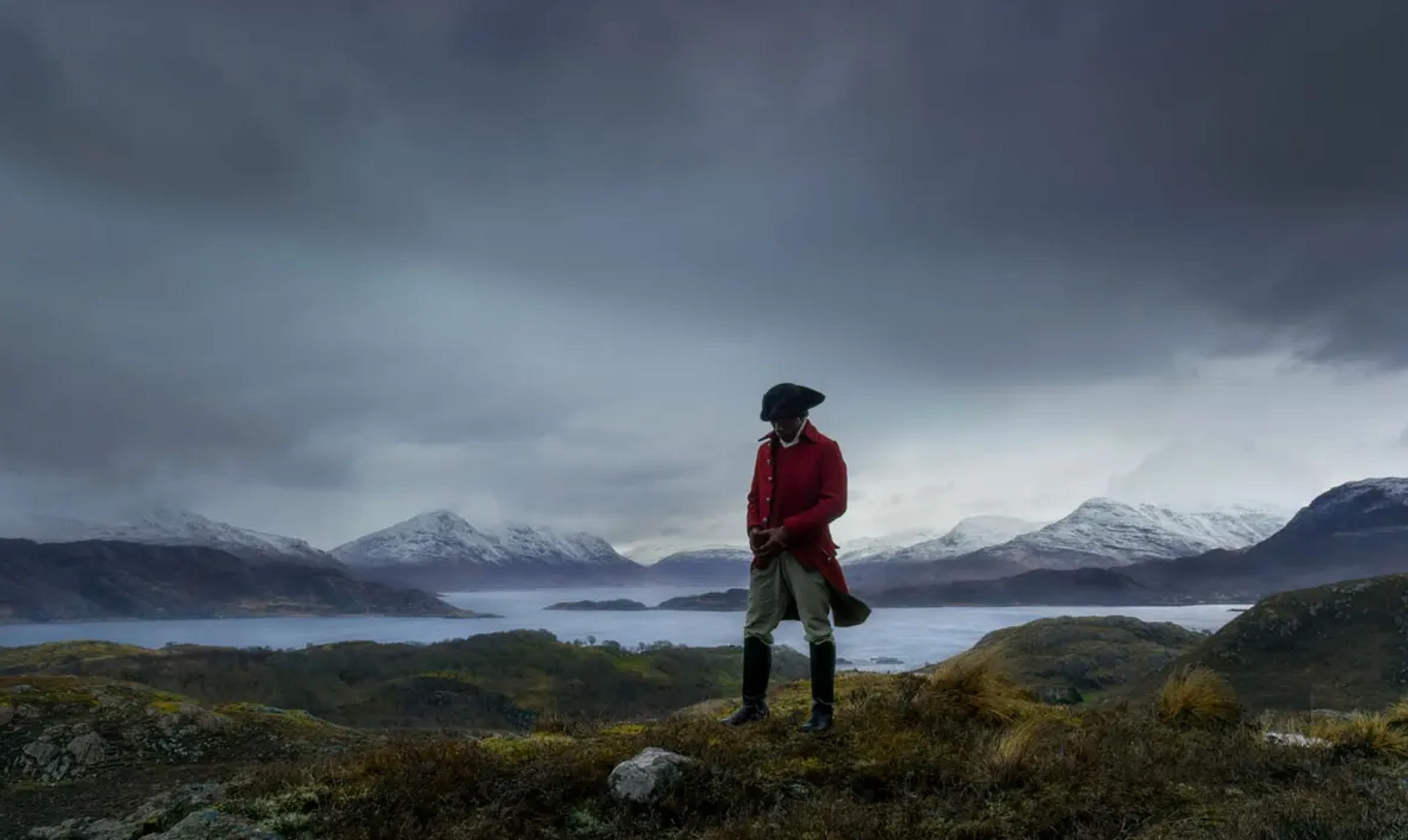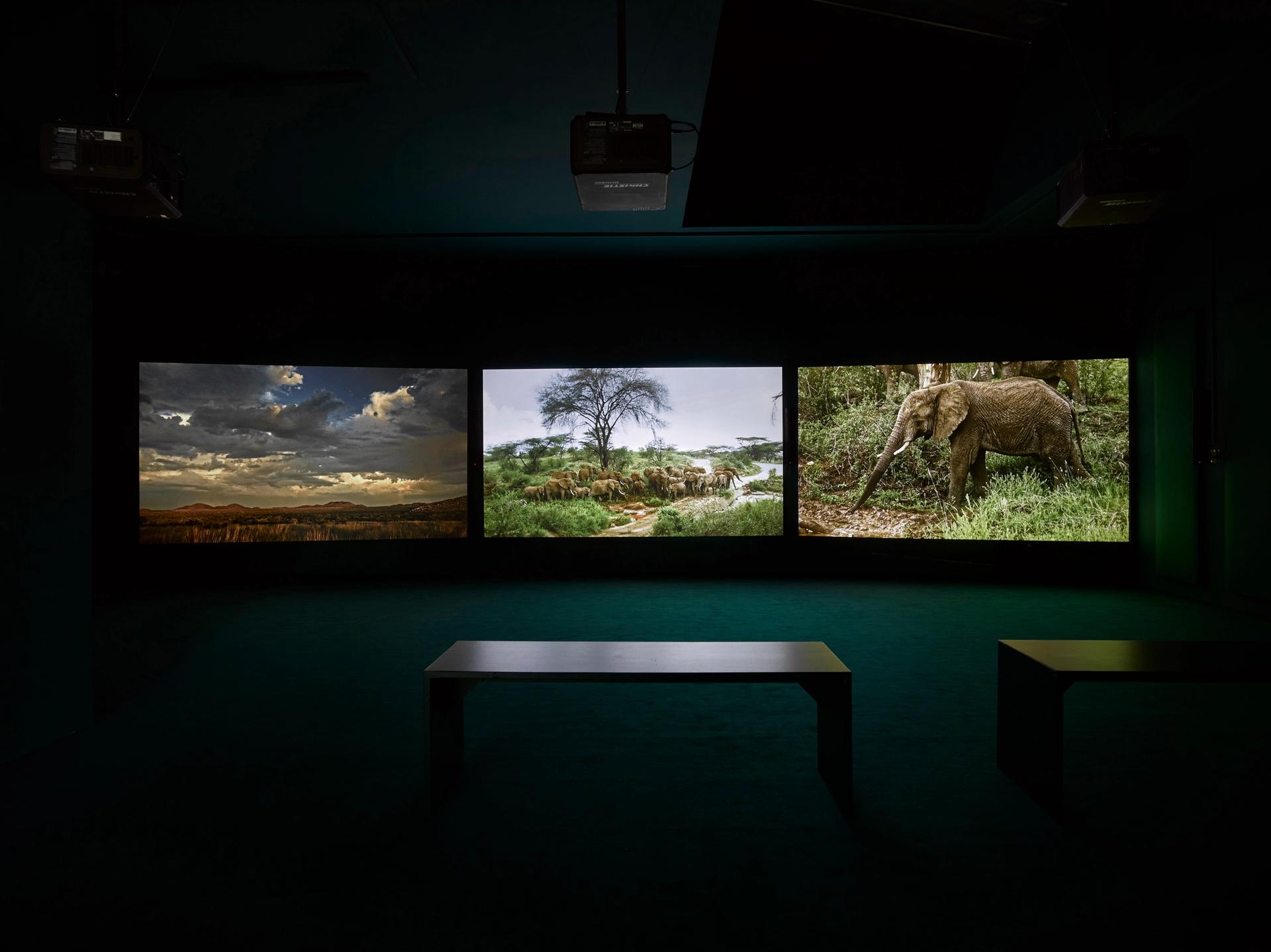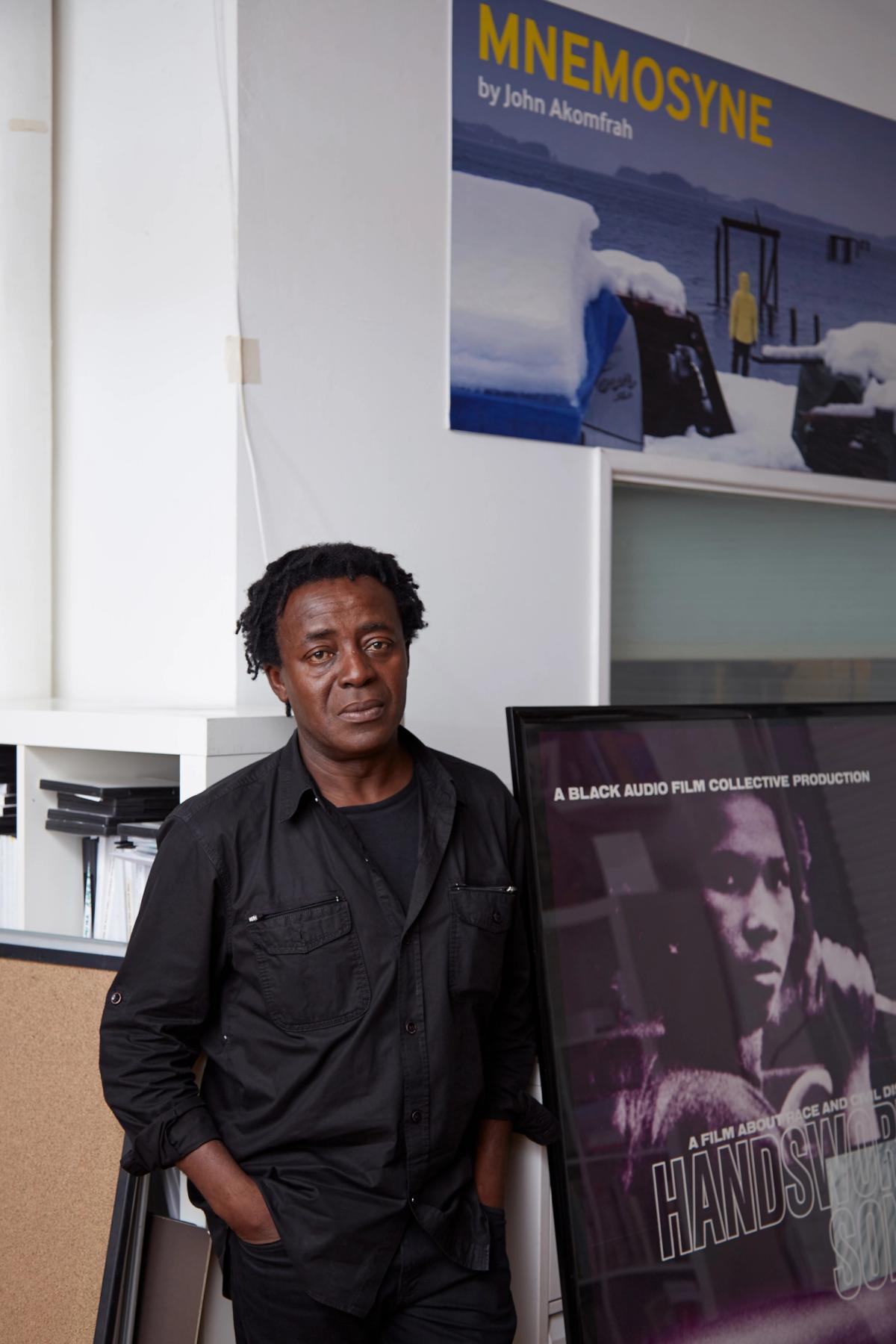The filmmaker and artist John Akomfrah, known for his searing video installations exploring issues such as climate change and post-colonialism, will represent the UK at the 60th Venice Biennale next year (20 April-24 November 2024). Skinder Hundal, the global director of arts at the British Council and commissioner of the British Pavilion, says in a statement: "The quality and contextual depth of his artistry never fails to inspire deep reflection and awe. For the British Council to have such a significant British-Ghanaian artist in Venice is an exhilarating moment."
Akomfrah says in a statement: "I’m grateful to be given a moment to explore the complex history and significance of this institution [the British Pavilion] and the nation it represents, as well as its architectural home in Venice, with all the stories it has told and will continue to." Last year, he spoke to The Art Newspaper on our A Brush With podcast about his influences—including writers, musicians, filmmakers and other artists—and the cultural experiences that have shaped his life and work.
Akomfrah was born in Accra, Ghana, in 1957 but has been based in London since he was a child. He came to prominence in the early 1980s as part of the Black Audio Film Collective (BAFC), a group of seven artists founded in 1982. From his early years with the BAFC to his recent works as a solo artist, he has explored charged social issues—including racial injustice, colonialist legacies, diasporic identities, migration and extreme weather events—through a distinctive approach to memory and history. He was knighted in the King’s New Year UK Honours List for 2023.

John Akomfrah’s Vertigo Sea © Smoking Dogs Films. Courtesy Lisson Gallery
Akomfrah has participated in two previous Venice Biennales. His Vertigo Sea, the first part of a trilogy focused on the destruction of the planet, was a talking point at the 2015 biennale organised by the late Nigerian curator Okwui Enwezor (All the World’s Futures). The three-screen film installation fused images of marine life from the BBC’s Natural History Unit with archive footage of whale hunting and the slave trade along with new material, to reflect on various aspects of humanity's relationship with the ocean.
The second part of the epic project Purple (2017), shown in the Curve gallery at London’s Barbican in 2018, is a six-channel video installation that gives the artist’s own nuanced, penetrating take on the insidious threat of climate change. In 2019, he showed the third work in the trilogy, Four Nocturnes, at the inaugural Ghana Pavilion in Venice which focused on humanity’s destruction of the natural world via Africa’s declining elephant populations.

John Akomfrah's Four Nocturnes (2019)
© Smoking Dogs Films; Courtesy Smoking Dogs Films and Lisson Gallery.
In 2017, Akomfrah won the biennial Artes Mundi prize with his 40-minute, two-screen video, Auto Da Fé (2016), which muses on the theme of mass migration over a 400-year period. “I wanted to focus on the fact that many people have to leave because something terrible is happening, it’s not just about leaving for a better life, many people feel they have to leave to have a life at all,” Akomfrah said.
In an interview in 2018, we asked Akomfrah if he felt pressure to keep raising the bar with each project. “I have wondered that. I honestly don’t think so, but it’s clear there is a dialogue between the commissions and what I’m asked to do,” he said.
The UK representative at the 2022 Venice Biennale, Sonia Boyce, won the Golden Lion prize for Best National Participation at the 59th International Art Exhibition of La Biennale di Venezia.


